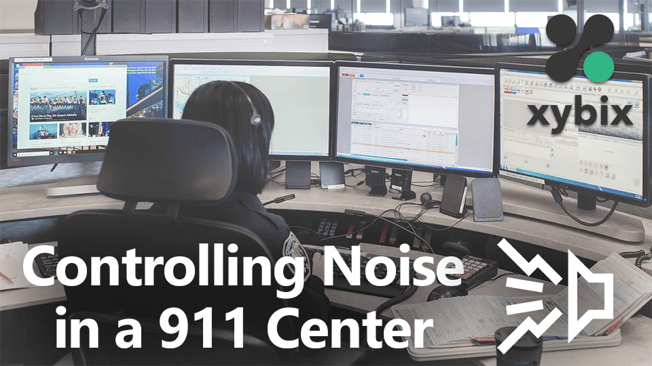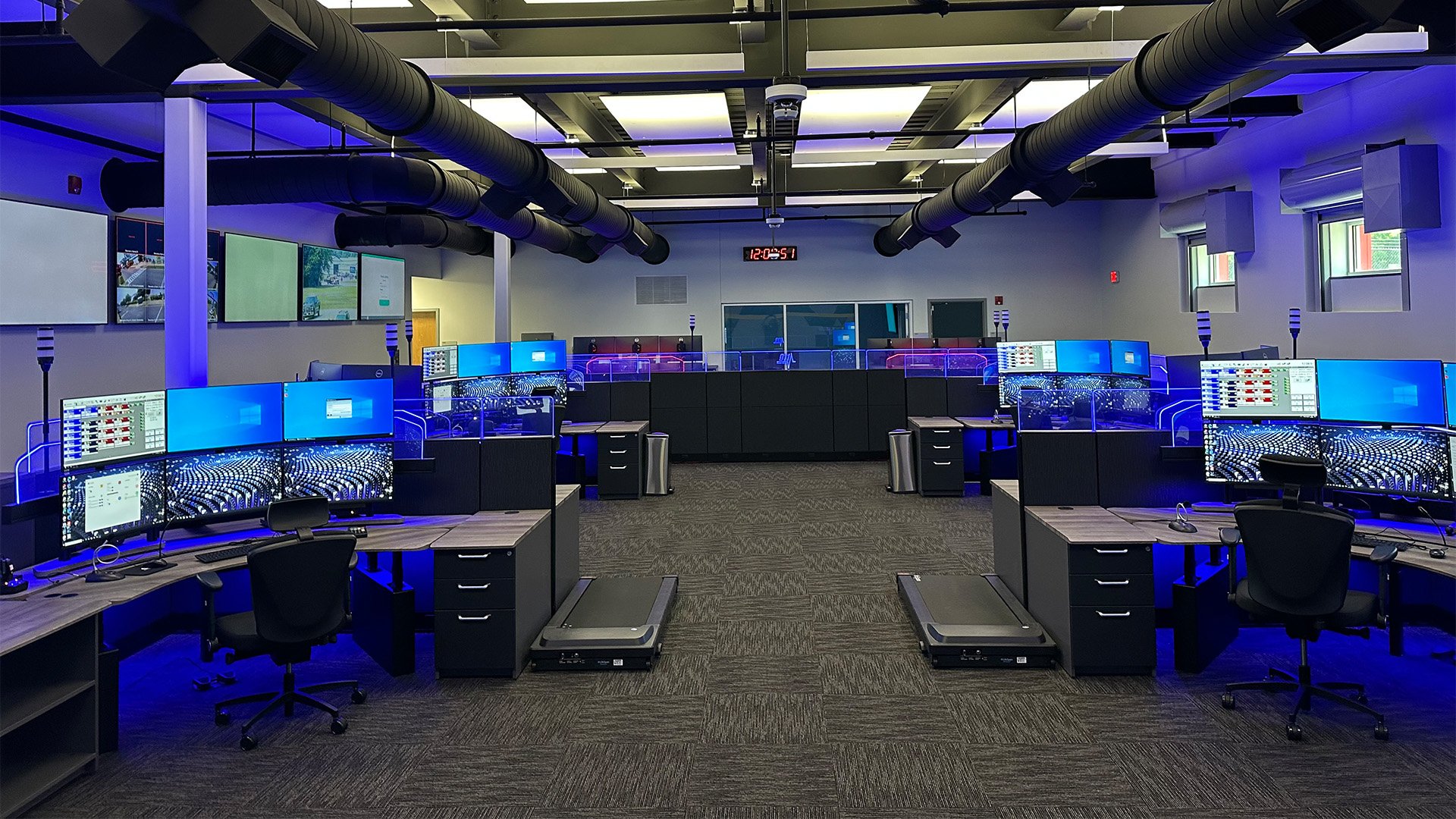
I saw the note below in a 911 chat and I thought it was an excellent question: What is an appropriate noise level in a 911 center and how do you change it? (And by “change,” I mean reduce the noise!)

Noise is a common complaint from those who work in 911 centers. Due to the nature of the work, call takers and dispatchers tend to be louder than employees in a regular office environment. Rarely does a car chase or large fire bring excitement to your typical office, for example. But, just like typical office employees, noise does affect people working in a 911 center.
Studies have shown that prolonged exposure to noise can have serious health ramifications, including high blood pressure and fatigue. In addition, noise can increase stress and mistakes while decreasing job satisfaction. Dispatchers already have enough stress—why add more?
Fortunately, if you understand the sounds and noises around you, you can help control them.
The Sound of a Center
Every 911 dispatch center has sound. Computers whirring, the AC unit humming, and, of course, people talking. Office workers find an acceptable level of sound at 48 to 52 decibels. The following chart gives you an idea of decibels.
|
Noise Source |
Decibels (dba) |
|
Whispering |
34 |
|
Conversation |
60 |
|
Vacuum Cleaner |
69 |
|
Heavy Traffic |
90 |
|
That “One” Dispatcher 😉 |
100 |
|
Jet Aircraft Overhead |
115 |
When Sound Becomes Noise
Noise is basically unwanted sound and it comes in three physical forms:
- Duration: How long does it last?
- Frequency: Is it high pitch or low pitch
- Intensity: How loud is it, really?
Any combination of duration, frequency, and intensity turn sound into noise. Noise then leads to mistakes, frustration, fatigue, and overall grumpiness.
When Noise Becomes Annoying
At what level is noise annoying? A typical office is considered noisy at 65 dba, but we know that 911 centers are not typical offices. So, what level of noise is appropriate for a dispatch environment? It’s tough to say. Often, everyone is talking—including that loud talker that seems to be in every 911 center. And everyone is listening to those around them for situational awareness. I can’t pinpoint a decibel level that impacts dispatchers—but it's likely that your team just knows when it gets too loud. And then, like the poster above, asks for advice in a group chat.
Solving the Noise
Controlling the acoustics in a 911 center is critical due to the impact of noise on dispatcher’s health and productivity. Noise can be minimized at three points of contact:
- The Source: Who or what (machinery such as HVAC or printers) is making the noise?
- The Path: Where does the noise travel from?
- The Receiver: How does the noise reach that person (the receiver) and how are they affected by the noise?
The American Society of Interior Designers recommends four ways to control noise through design elements: Ceiling Systems, Furniture Consoles, Sound Masking Systems, and Carpeting. Let’s take a look at each.
Ceiling Systems
If your center has a drop ceiling, you can help deflect noise with noise reduction tiles available in various shapes and thickness. For an open ceiling, you can hang acoustic tiles to cut down noise. In one 911 center I visited, they actually needed the hanging tiles so they could hear their callers over the noise of rainstorms.
Furniture Consoles
Does the furniture matter? Yes it does. As a Vice President and Owner at Xybix, dispatch furniture consoles are my specialty so I delved into the noise reduction possibilities for you.
- Room Design: When laying out the room, make sure people who need to interact frequently are near each other. In a large center, try to separate the dispatchers from the call takers, who tend to make more noise. When you purchase consoles from Xybix, we provide free layout services from a dedicated professional interior designer, who works to understand your workflow and needs.
- Panel Dividers: Dispatch console vendors may offer systems for reducing noise. For example, at Xybix, we offer a standard panel system with .55 noise reduction coefficient (NRC) tiles. The NRC is a measurement of the noise that reflects—so our .55 tiles reduce 55% of the noise bouncing back. The panel system has removable “tiles” that connect to the base steel panels about 30” from the floor, and they are proven to reduce noise.
- Acoustic Tiles: In addition to panels, carefully placed acoustic tiles can reduce noise. Xybix offers a .75 NRC premium noise reduction option, and we can help you with where to deploy this solution.
- Steel vs. Wood: Like everything, the material used for the console has pros and cons. Steel is strong and will last. But its NRC is 0, meaning it reflects—not absorbs—sound. This makes for a noisy environment. As a result, dispatchers hate the noise steel consoles create. All vendors should have their furniture tested to the ASTM 423c standard for sound absorption. Ask for the results of that test to help weed out the good from the bad.
Sound Masking Systems
Sound masking systems work by increasing ambient noise in order to decrease the perception of speech and noise. The systems are expensive and not necessarily effective, so they should only be considered in cases of extreme noise.
Carpeting
Hard floors have an NRC rating of 0—meaning they provide no noise reduction. Carpeting, on the other hand, bears a .20 to .30 NRC and generally absorbs a decent amount of sound. Obviously, there are pros and cons of each flooring material as hard floors are easier to clean. Note that Xybix can help with flooring needs for your project, including carpet.
Make your 911 dispatch center a better place to work by researching and installing noise reduction features. We know that noise can impact performance and stress levels, and we know how to control it. Get started today with the help of our subject matter experts at Xybix.



